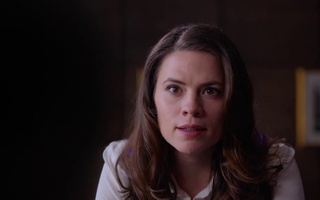Hundreds of attendees from across the United States gathered in Paine Concert Hall Friday and Saturday for “Black Lives Matter: Music, Race, and Justice,” a conference examining the intersection between black culture and race relations.
The conference, hosted by the Harvard Graduate Music Forum, featured a faculty panel, discussions of academic papers, and a musical performance. Ian R. Copeland and Laurie Lee, two Harvard graduate students who study music, said they organized the conference to highlight a lack of academic attention paid to black music. Copeland added that music often plays a large role in American race relations and discrimination against black people.
“We were inspired by and also troubled by... police shootings throughout the United States, but also what seemed to be increasing hostility to the Black Lives Matter movement in the political sphere,” Copeland said.
Copeland added that music is often a powerful tool in dealing with painful events.
“Music is a big resource for people dealing with trauma and finding expression,” he said. “Popular music in particular can be a way to bring people together and to call people to action.”
On Friday, the conference’s first “paper session” examined three academic papers which centered on inclusion of black people in music, academia, and music education.
The next event discussed the role academics can play in political activism around race. The panel featured four speakers from New York University, Dartmouth College, the Ohio State University, and a local Black Lives Matter chapter in Cambridge, Mass.
Treva Lindsey, a professor of women’s, gender, and sexuality studies at Ohio State University and a current Harvard W.E.B. DuBois fellow, described her response as a professor to Michael Brown’s shooting on Aug. 9, 2014. Lindsey said many black people reacted to Brown's death at the hands of a police officer with an “exasperation that was built for hundreds of years." She said she saw her role after the shooting as a caregiver to students in distress.
“What is my responsibility in this moment? To speak to my students in this moment, to care for my students in this moment, to show up for my students in this moment, to speak directly to my students on campus in this moment,” Lindsey said.
Regarding the current role of music studies in race relations, NYU professor Matthew D. Morrison said he believes that music studies needed to “benefit from” the activism and passion of Black Lives Matter.
Morrison stated that academics have the responsibility “to realize that because we have a position as writers, as cultural thinkers, as all of these things, to be active in making sure that things that we feel like are important to the larger community and society” are reflected in music studies. If they are not, Morrison said, organizing outside of academic institutions is necessary.
“There are various ways of organizing, various ways of dealing with history, various ways of finding ways to deconstruct the institution in the cause that you can learn from,” Morrison said.
Saturday’s events featured three paper sessions: “Black Religion, Black Space, and Black Speech,” “Improvisation, Struggle, and Liberation,” and “Vernacular Culture and the Power of Celebrity.” The conference concluded with a piano performance from Karen Walwyn, an Associate Professor of Music at Howard University, and a keynote lecture from Morrison.
In the weekend’s last paper session, Kimberlee D. Sanders, a Harvard graduate student in the Department of East Asian Languages and Civilization, presented her paper: “Sorry/I Ain’t Sorry: Beyoncé’s 'Lemonade,' Southern Gothic Temporality, and Reclaiming the Angry Black Woman.” Sanders proposed that the role of anger in "Lemonade" fostered a sense of community and empowered women of color, asserting that it “reclaims a space for black female anger.”
Sanders discussed the underrepresentation of black female contributions in the Civil Rights Movement of the 1960s.
“Their marginalization becomes this vortex that generates a righteous anger of saying ‘look at the trauma that I’ve endured. Look at the things I have done. Look at me. Let me occupy space,’” Sanders said in an interview.
—Staff writer Alice S. Cheng can be reached at alice.cheng@thecrimson.com. Follow her on Twitter at @alicescheng.
—Staff writer Kristine E. Guillaume can be reached at kristine.guillaume@thecrimson.com. Follow her on Twitter @krisguillaume.
Read more in News
HUDS Workers Offer Advice on Protesting TrumpRecommended Articles
-
Women's Rugby Splits Squad for Senior Day TournamentOn Saturday afternoon, snow flurries may have delayed the start of the Crimson Sevens women’s rugby tournament, but the wintry weather couldn’t keep the host team from lighting up the scoreboard beneath the bubble of Harvard Stadium.
-
For GrandmaWhen black people get killed, my white Facebook friends from home get to be upset about riots. They get to post videos of black people weeping, and shouting, and setting shit on fire and call it foolishness, quietly tsk-ing their tongues and shaking their heads from the safety of their dorm rooms. They get to believe the newscasters and feel bad for all those poor, poor windowpanes and police cars and doorknobs that are clearly the main victims of police brutality. Meanwhile, I’m starting to look a lot like my grandma, rocking silently in front of my laptop as she did in front of the radio, or the stove, waiting for all her babies to come home.
-
"Black Sea" Surfaces with Quality Acting"Black Sea" does not offer anything new, but it offers the old quite well: a stellar performance from Jude Law brings this submarine thriller safely to port.
-
The Apolitical Hubris of Black ProgressivismLike many democratic socialists, Sanders prefers to view Americans as populating classes, not races—and like many conservatives incidentally, he views employment as the most effective solution to addressing the litany of woes touted by black and Latino progressives.
-
 ‘Conviction’ Intriguing, Amusing, and Emotionally Lacking
‘Conviction’ Intriguing, Amusing, and Emotionally Lacking













